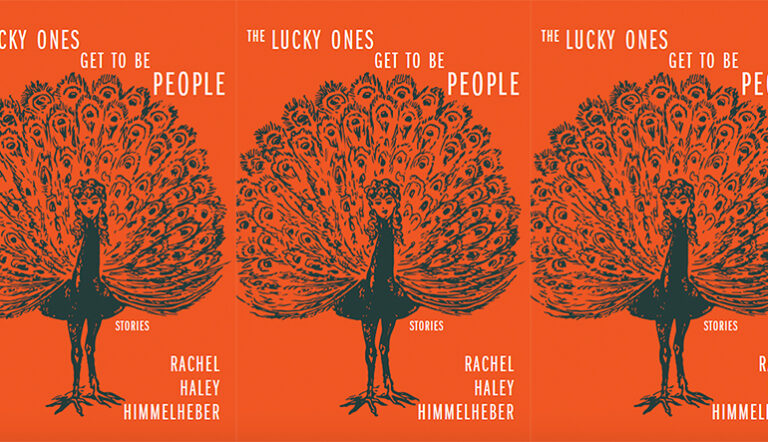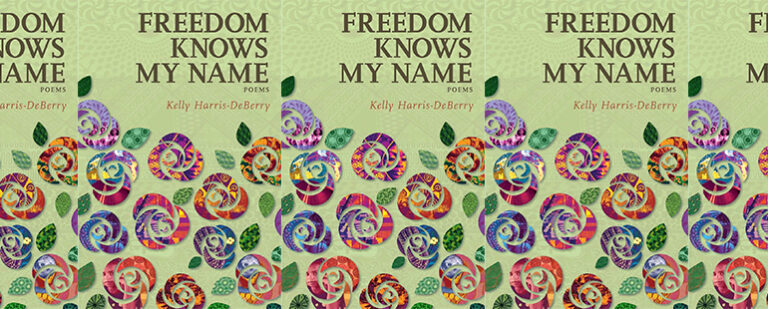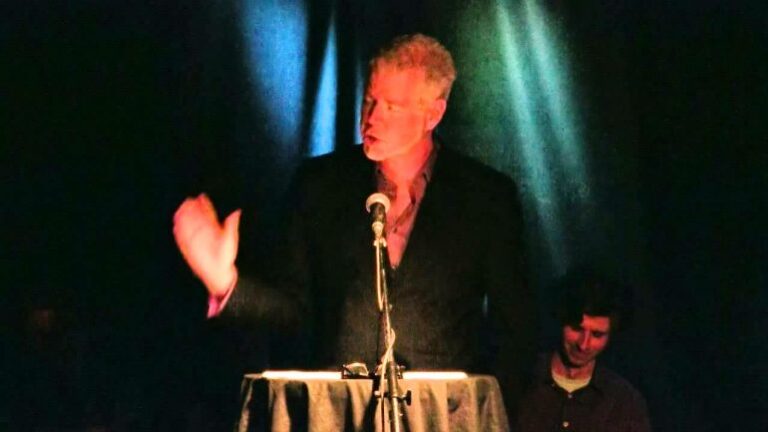Origin Stories: Matthew Neil Null’s ALLEGHENY FRONT
You just don’t see enough literary fiction about bears. If, like me, you prefer your nutritious reading with a side of mauling, you should pick up Matthew Neil Null’s Allegheny Front. Erudite, unsentimental, and alert to the natural world, Null turns the history of West Virginia into stories that feel both authentic and mythological.
I asked Null about his creative process. He told me that he thinks of all his stories as “a conversation with another writer, usually dead,” which gives him a chance to assimilate and purge the influence. Null gave me more details about the origins of four of them.
1. “In the Second District,” a story about a bear hunt
MNN: My God, did I work over this story. Nearly a decade. Probably because I was resisting the first-person voice, which is not my natural mode, but then I began reading Isaac Babel in a serious fashion. Set on the shifting front of the Polish-Soviet War, Babel’s Red Cavalry stories are notable for their unorthodox narrative shifts, almost as if the camera is being jerked to the location of highest drama, in a landscape of striking images and amoral violence. My own characters are using hounds and guns to kill a bear, scrambling on endless boulder fields, inflicting a casual carnage. In the end, as in Red Cavalry, there is no message, except don’t look away, don’t dare look away. Babel’s work was revelatory. As often happens with writers I most admire, I resisted at first and had to give him several readings to understand. I don’t want to ruin it, but the final passage in my story takes a hard right turn, veering away from what has come before—pure Babel.
2. “Natural Resources,” the history of a landscape, plus bears
MNN: Writing this story, I had Primo Levi’s “A Tranquil Star” tucked in my brain, somewhere above my right ear. Levi’s story dispenses with the traditional accoutrements of American short fiction—point-of-view, protagonist, even dialogue—and instead he wills up a world out of pure language, pure exposition, exploring the story of an exploding star and the millennia it has lived. He leaps beyond the bounds of a single human life. Such a narrative sweep! He does so much in five brief pages. “Natural Resources” is a very short story uncoupled from human perspective, following the rise and fall of a population of black-bears over the decades while also tracing the long and ragged trail of extractive industry, electoral politics, and government bureaucracy. Too much American writing has such a narrow human vision. Levi is a welcome antidote. He can go anywhere, do anything.
3. “The Slow Lean of Time,” a picaresque story about a log drive
MNN: Eudora Welty and maybe a dash of Henry Green. Welty’s “The Wide Net” is one of my very favorite stories, a broad and anarchic tale of men dragging the Pearl River for a woman who may or may not have drowned herself. It lifts to the level of myth, of circular time and characters who are more like titans than mortals, though they dress in homespun and live without fanfare. In my small way, I tried to do the same in “The Slow Lean of Time,” with the great river as the organizing principle, the men driving logs down its length to market with nothing but leveled forest behind. All people flock to the river’s edge. We cannot help it. Anything and anyone can be encountered there. The edge of land and water is the zone of highest drama.
4. “Something You Can’t Live Without,” a story about a traveling salesman that keeps not turning out like you expect it to
MNN: I wanted to pay tribute to Flannery O’Connor but also exorcise her influence from my writing, if it could be done. I mean, I really wanted to kill her stone dead. She’s had such an impact on the American short story that people who’ve not read her still write stories rich with her DNA. There’s so much to admire in O’Connor’s work—the pacing, the vivid imagery, the sharply drawn characters—but then, I find myself resisting her machined narrative authority, her focus on the mechanics of grace, her neat endings tied like knots. As a faltering Protestant, I can’t accept her notions of ritual, salvation, and culpability; I don’t see a guiding hand on this earth, only a distant God, paring his nails behind the moon. The wine never turns to blood. The wafer is no broken body. The symbol shall not true. At a certain point in “Something You Can’t Live Without,” you’ll see a gunshot character fall while watching light play through clouds on the face of a mountain—an echo of “A Good Man is Hard to Find” with the dead grandmother’s face in rictus as she smiles at the cloudless sky. But rather than end the story there, I have the narrative vault beyond human time in the pages ahead, considering the destruction of the man’s body, its decomposition and scattering by animals, and the thoughts of the many people who come upon his remains. The century rolls on. I wanted to return the narrative to THE LAND and its tumbling seasons, where it belongs, not to the ghost in the sky. The land has no message. It only endures.
Matthew Neill Null is the author of the novel Honey from the Lion (Lookout Books). A graduate of the Iowa Writers’ Workshop and a winner of the PEN/O. Henry Award, his short fiction has appeared in The Oxford American, Ploughshares, The Mississippi Review, American Short Fiction, Best American Mystery Stories, Ecotone, and elsewhere. He divides his time between West Virginia and Provincetown, Massachusetts, where he coordinates the writing fellowship at the Fine Arts Work Center.
David Busis’s writing has appeared in The New York Times, The Wall Street Journal, The Atlantic online, and elsewhere. A graduate of the Iowa Writers’ Workshop, he is working on his first novel. Find him online at DavidBusis.com.


